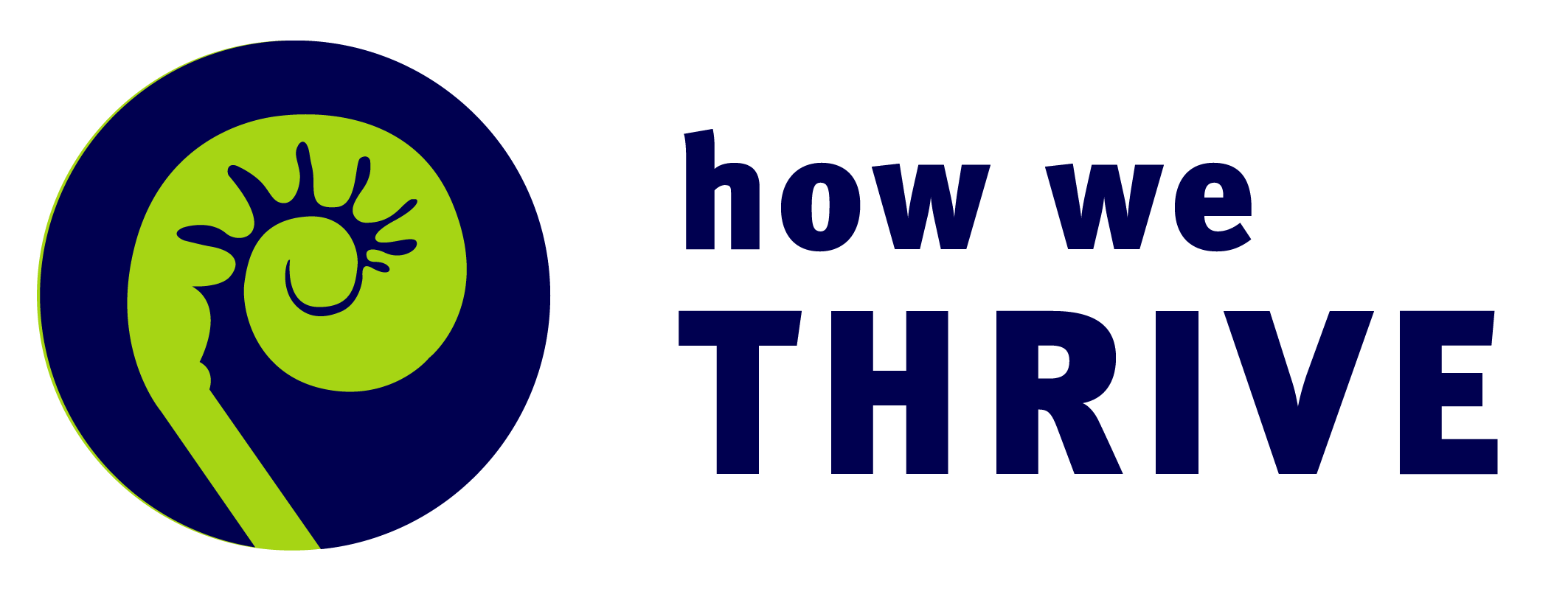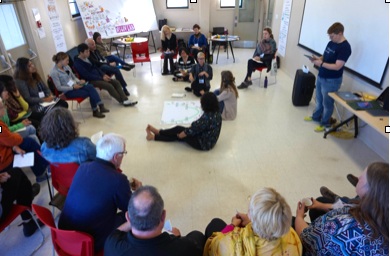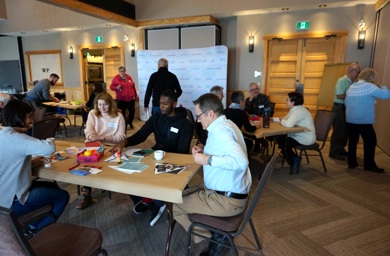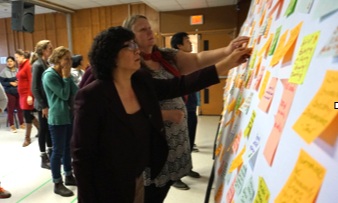Conversation with Jocelyn Yerxa, by Jennifer DeCoste
As co-lead of NS GovLab within the Nova Scotia Department of Seniors, Jocelyn reflects on how a social innovation lab can help address issues related to our aging population.
Jennifer : The topic certainly sounds relevant. What are you trying to accomplish in this case, and why a lab?
Jocelyn: My colleague Aubrie McGibbon and I support lab participants from all across the province. Together we are reimagining an older population and trying to figure out what needs to change in terms of policies, programs and services. We are also running prototypes that help us understand how to address complex problems such as social isolation.
We are looking at some pretty large questions:
How might we create a province where people can age at home and stay connected to their community?
How might we foster connections across generations and cultures to create resilient communities in Nova Scotia that can adapt to their changing demographics?
For those who are unfamiliar with social labs, can you tell us a bit more about how a lab is set up? How are participants chosen?
We structure participation as a fellowship opportunity and we accept applications two times a year. Our fellows are from all sectors, all ages, many areas of the province, and diverse backgrounds. They commit to the fellowship for a year. The first part of the year is an immersive learning experience about social innovation lab theories and methods. The second phase is an opportunity for fellows to integrate those learnings into their work and lives. We are also building a community of practice with our fellows as they complete the second phase. We anticipate that involvement will continue well beyond the lab itself.
Our lab has foundational principles as well, which you can read more about in my blog post, “The Octopus Beak: How the Octopus Inspired the 7 principles of NS GovLab.” You can find out more and stay up-to-date on what we are up to following us on Twitter too.
When we worked together in government there were all kinds of different approaches to complex problems, why did you land on a lab for this work?
We chose to use a lab approach because it is versatile. Labs allow us to focus on diversity and learning through experimentation with partners in the field. We work together to test, see what works and doesn’t, pivot, and try again.
One thing I’ve learned though is that a lab is not well suited for all situations. Early on I wrote the blog post “What is NS GovLab? Social Innovation 101” about this. A lab is not a “better” approach, but rather a different approach that works well for complex problems like aging. It connects people who have a stake in the outcome with building and testing solutions. This was important for us especially because we believe a social innovation lab will help us learn, explore and ultimate create positive change for the future.
It sounds like an amazing learning opportunity for everyone. What has been your main learning?
I have learned so much…where to begin! I think Margaret Mead said it best, “Never doubt that a small group of thoughtful, committed citizens can change the world; indeed, it's the only thing that ever has.” We’ve had two cohorts of fellows so far. That’s forty-three thoughtful, committed individuals. They have been incredibly inspiring in their open-mindedness and willingness to suspend their own perspectives to learn from others.
I’ve learned so much from our small leadership team too. We had a group of public servants and private sector contributors: Beth Fox, Mo Drescher, Rayna Preston, Aubrie McGibbon and myself. Beth and Rayna were given some of their work time from other positions in government to support the development of NS GovLab. They have also volunteered many hours. We were lucky enough to be able to contract Brave Space to allow Mo to dedicate time to each of the first phase with cohort 1 and 2. Co-creating NS GovLab with this team in real time is challenging and rewarding. It takes a lot of trust and humility to learn together every day. I feel very privileged to have had that with this amazing group of humans.
Do you think there is space for more social labs in Atlantic Canada?
I think social innovation labs provide a great opportunity for learning and insights as well as unusual and unexpected connections. However, like I said earlier, labs are not for every problem and every problem doesn’t need a lab. My vision would be that we work together in Atlantic Canada to get clarity on what the lab process it and where/when we use it. I’d also like to see people sharing what they are learning so that we can have stronger labs in this region. It is still a relatively new approach and very contextually dependent, so an opportunity to learn and grow the field together in Atlantic Canada would be a great opportunity.
Follow NS GovLab on Medium. Find out more about the activities of the NS Department of Seniors. Learn more about social innovation labs here and here. At the 2019 THRIVE gathering, the Design Thinking stream will apply complexity tools to the issue of aging and ageism. One of the Glimpses of Thriving sessions will focus on “Becoming elders.”




